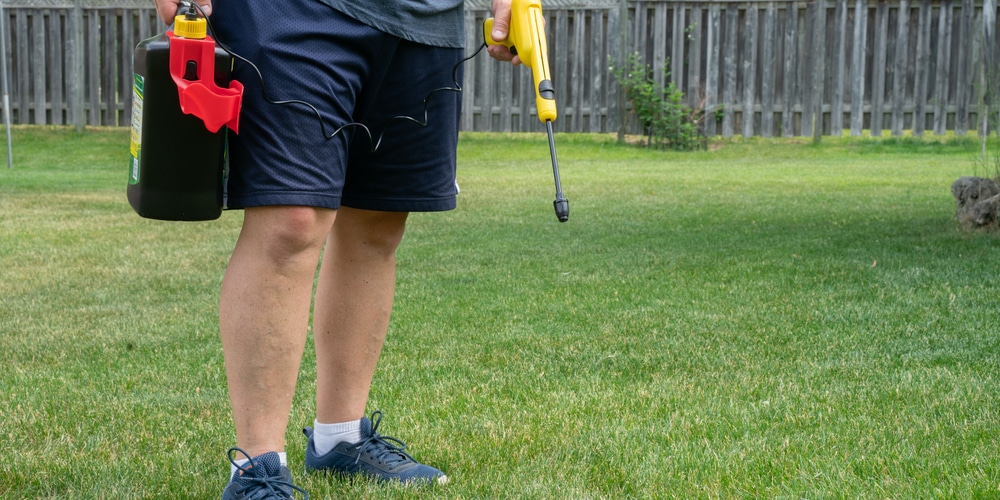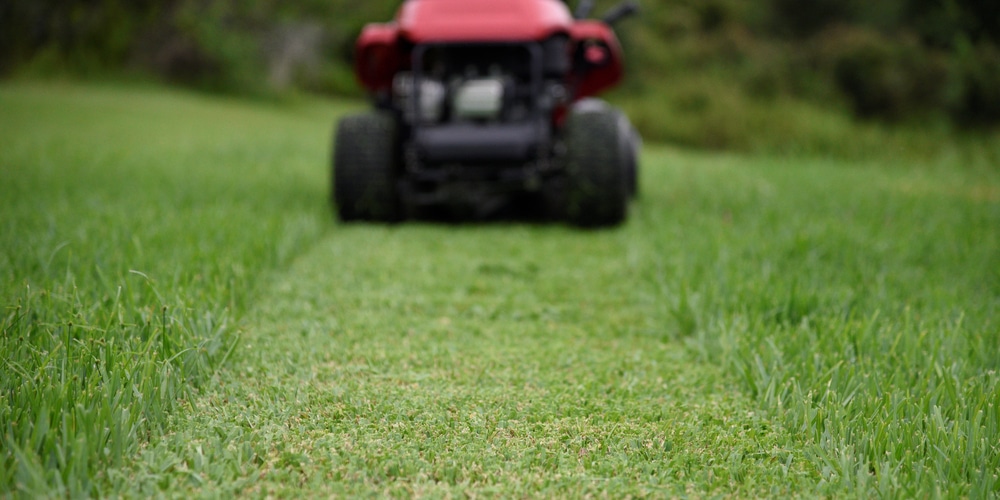There is much misinformation about 2, 4-D, and Saint Augustine grass. Some people swear that this herbicide will kill Saint Augustine grass immediately, while others maintain that it is perfectly safe.
So, what is the truth? Is 2, 4-D harmful to Saint Augustine grass?
In this article, we will explore the facts about this herbicide and answer that question once and for all!
What Is 2, 4-D?

2 4 D is a broadleaf herbicide commonly used to control weeds in lawns and gardens.
The active ingredient in 2,4-D is an organic compound called 2,4-dichlorophenoxyacetic acid. When this compound is applied to leaves, it interferes with plant growth and development, causing the leaves to turn yellow and eventually die. 2,4-D is typically sold as a liquid concentrate diluted with water before use.
It can also be formulated as a dry powder or granules applied using a spreader. 2,4-D is effective against many broadleaf weeds, including dandelions, clover, and dollarweed.
When used correctly, 2,4-D can be an effective tool for weed control. However, exercising caution when using this herbicide is essential to avoid potential risks.
Will 2, 4-D Kill St. Augustine Grass?
Any gardener knows that a healthy lawn is essential to a well-kept home. But achieving that perfect lawn is no easy feat. For one thing, different types of grasses have different sensitivities to herbicides.
St. Augustine grass, for example, is especially sensitive to 2,4-D during periods of spring green-up and hot summer temperatures. This means special care must be taken when using any herbicide near St. Augustine grass.
2 4 D is a herbicide often used to kill lawn weeds. However, 2, 4-D can also damage or kill other plants, including St. Augustine grass. The best way to avoid damage to St. Augustine grass is to read the label before using any herbicide carefully.
If the label indicates that the herbicide is safe for use on St. Augustine grass, it should not cause any harm. However, if the label does not specifically mention St. Augustine grass, it is best to err on the side of caution and avoid using the herbicide.
In general, it is always best to consult a qualified landscaper or gardening expert before using any herbicide to ensure that the product will not damage your lawn.
What Herbicide Can You Use On St. Augustine Grass?
St. Augustine grass is a popular choice for lawns because it is tolerant of heat and shade and highly resistant to pests and diseases. However, like all types of grass, it can be susceptible to weeds.
The best way to control weeds in St. Augustine grass is to use an herbicide specifically designed for this type of grass. Two main herbicides can be used on St. Augustine grass: pre- and post-emergent.
Pre-emergent herbicides are applied before weeds start to grow, and they work by preventing weed seeds from germinating. Look for herbicides with the following active ingredient: Prodiamin and Dithiopyr.
Post-emergent herbicides are applied after weeds have already started to grow, and they work by killing the weeds that are already present. One option is to spray weeds with an herbicide containing the active ingredient, Atrazine. If applied correctly, Atrazine will control weeds without harming your St. Augustine grass lawn.
Does 2 4 d Kill St Augustine Grass: Conclusion
Now that you know the truth about using herbicides on St. Augustine grass, you can decide whether or not to use them on your lawn. Always read the label carefully and consult a qualified landscaper or gardening expert before applying any herbicide to your lawn.
With some care, you can maintain a healthy and weed-free St. Augustine grass lawn all season long.
